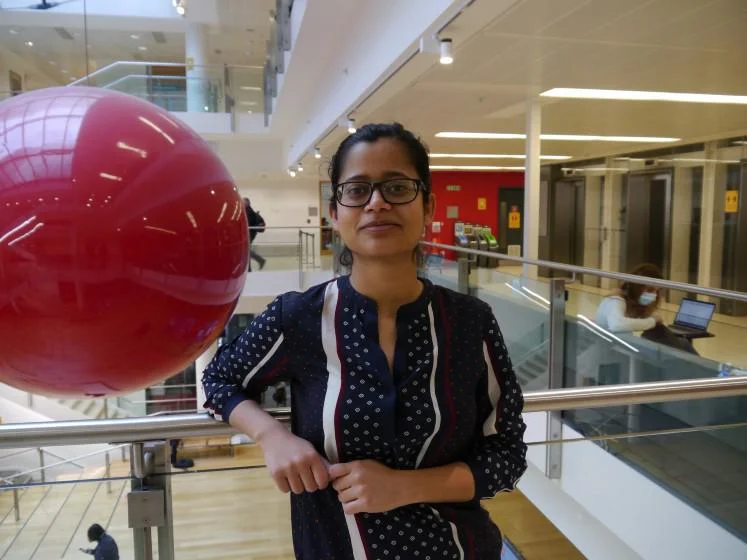Exploring digital innovation processes for humanitarian action: a Q&A with Anulekha Nandi
Understanding new technology benefits and defining frameworks to protect against unintended adverse consequences.
Anulekha Nandi is a PhD student in Information Systems and Innovation in the Department of Management
The best thing about LSE is that it constantly challenges you to be a better version of yourself – to learn, unlearn, and relearn.

What are you currently researching?
Through my research I am trying to understand digital innovation processes for humanitarian action.
Coordinating a response to a humanitarian crisis is fraught with multiple managerial, organisational, and operational considerations. Practitioners are expected to ensure efficient allocation of resources in highly compressed and safety critical timeframes that have serious implications for human lives.
Herein, digital innovation processes are integrated and adopted in order to manage this complexity and ensure better outcomes for humanitarian responses and affected populations. My research aims to understand the considerations behind these strategies and the modalities of their sustainability.
Why did you choose this area of study?
Professionally, I have worked across research, policy, and practice in the development sector in India. During the course of my work, I was faced with the conundrum of adopting information and communication technology to improve long term socio-economic outcomes. At the same time, in adopting a right-based framework for digital development, it was also my job to advocate for better public understanding of its capacity to exacerbate existing inequalities, marginalise individuals and groups, and even spark violence.
This led to the need to understand digital technologies more deeply and draw out a nuanced understanding of the ways in which we can adopt new technology and figure out frameworks through which we can protect against its unintended but adverse consequences.
How will your research have a wider impact on society? Can you give some real-world examples of the impact your research will have?
Digital innovation is key for future resource planning and service innovation in the humanitarian sector. I hope my research can help humanitarian organisations improve both their service delivery outcomes and ensure that suitable frameworks are in place to safeguard against any negative results.
What have been the highlights of your research work so far?
Realising that it is difficult to study a humanitarian problem without acknowledging its complex ecosystem of intersecting actors and institutions.
What has been your biggest challenge so far?
The nature of the field is such that there are multiple critical concerns that demand a depth of enquiry. A primary challenge has been to narrow down the scope of work to be able to make a credible contribution.
Another significant challenge has been to unlearn some of my work practices built-in from a deadline oriented work environment that had to be reactive and responsive to policy changes externally or programme changes on the field internally.
I have been working to switch off crisis mode and ease into more reflective work practices to develop and apply the skills I am constantly learning at LSE, along with the invaluable guidance and input I receive from my supervisor and faculty in improving my work.
What advice would you give to prospective students on the most effective way to approach research and keep stress levels down?
To schedule time each day to read, reflect, and write and not be concerned about whether that will make it to one’s final document for submission.
In a few words, what is the best thing about studying at LSE?
The best thing about LSE is that it constantly challenges you to be a better version of yourself – to learn, unlearn, and relearn. It equips you with the skills, guidance, and encouragement required to approach a conceptually fraught and academically complex topic. It does not promise an easy journey but certainly a rewarding one.